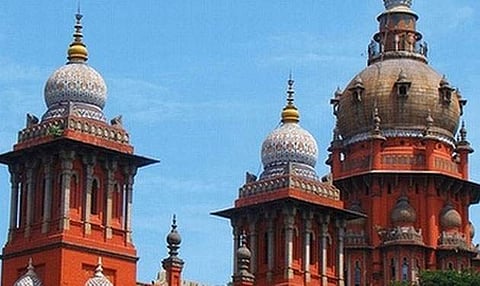

CHENNAI: On Tuesday, the Madras High Court ordered that the ‘Vande Mataram’ song must be played and sung once a week in all educational institutions and once a month in all other institutions, including workplaces like factories and offices. Here is why the order is extraordinary.
1. No national song mentioned in Constitution; Supreme Court hearing a case on the need for one
The Madras High Court repeatedly referred to Vande Mataram as the national song even as the Supreme Court is still hearing a case on whether there must be a national song at all. There is no mention of “national song” in the Constitution; it only speaks about national flag and anthem. The petition filed by Ashwini Upadhyay, a BJP spokesperson, in the Supreme Court seeking that a national song be declared is still pending in the Supreme Court. But the apex court had already in February made an observation that there is no reference to any “national song” in the Constitution.
2. What if you’re unable to sing the Vande Mataram? You can’t just keep mum and show respect
For the first time in legal history, the high court’s order has imposed an obligation on the citizens not just to play, but also sing the “national song.” Even for the national anthem, despite its Constitutional status, the current legal stand is that a show of respect when it is being played is required. In the landmark 1986 Bijoe Emmanuel verdict, the Supreme Court held that there is no compulsion to sing the anthem when it is played. Even the Supreme Court’s order last year mandating the playing of the national anthem before every movie show in theatres did not ask the movie watchers to sing the anthem.
3. Can’t sing it? You’d better have valid reasons. But who decides what reasons are valid?
The Madras High Court said that any person or institution which has difficulty in singing or playing the song should not be compelled or forced to sing it. But came with a conditional clause - “provided there are valid reasons for not doing so.” It was not explained what the “valid reasons” are and who are authorised to “compel or force” when there are appears to be no “valid reason” for the person or institution not singing or playing the song. Following last year’s Supreme Court order on mandatory playing of the national anthem in movie theatres, there were instances of clashes between persons who did not stand up for the anthem and other movie watchers.
4. Can courts rule on a question that a case does not raise? Case was not about singing the song at all
The case in which the high court issued the far-reaching order was not at concerned with any plea on the need to play and sing “Vande Mataram”. The case that the court was hearing was a petition filed by one K Veeramani on what he wrote during the Tamil Nadu’s Teachers Eligibility Test. He was denied marks despite his correct answer that “Vande Mataram” was originally written in Bengali. The court ordered the Teachers Recruitment Board to give one more mark to Veeramani and also a job appointment as the additional mark made him eligible for recruitment. But the court went on to say “it would be desirable that the National Song Vande Mataram is sung by citizens from different walks of life as frequently as possible.” The court reasoned that it would instil a sense of patriotism among people, and made it compulsory for the song to be periodically sung and played in all institutions.
5. The court order applies only to Tamil Nadu; ‘National song’ meant only for one state?
While the rulings of the high courts generally apply across the country, Tuesday’s order directed that the judgement copy be marked only to the chief secretary of Tamil Nadu, who shall issue appropriate instructions to the concerned authorities. The court also ordered the state’s director of public information to upload and circulate the translated version of ‘Vande Mataram’ in Tamil and English, thereby making it available in Government websites and also in social media. The order did not direct that the song be translated into any other languages.
6. High Courts are to secure fundamental rights of citizens? Where does singing Vande Mataram fit in?
The high courts of the country draw their powers from Article 226 of the Constitution. The Article empowers the high courts to secure the fundamental rights of the citizens as guaranteed in the Constitution. It debatable whether mandating the singing or playing of ‘Vande Mataram’ is in any way connected to fundamental rights. Given that the song has no recognised Constitutional status, its singing and playing can’t be considered a fundamental duty either.